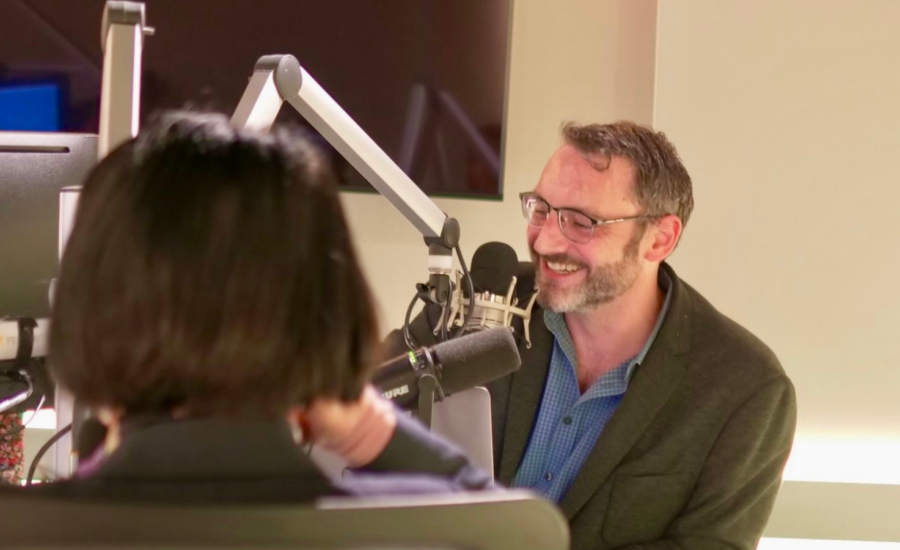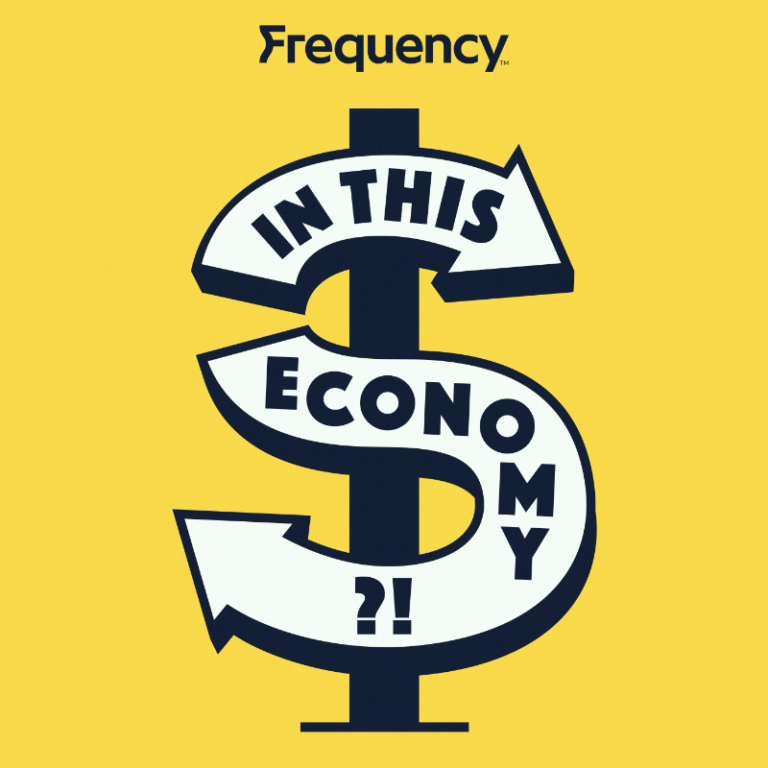Money tips from Jordan Heath-Rawlings: “Make sure you can afford a sudden expense”
We talk to the host of In This Economy?!, a new podcast that helps Canadians understand and tackle the rising cost of—well, just about everything.
Advertisement
We talk to the host of In This Economy?!, a new podcast that helps Canadians understand and tackle the rising cost of—well, just about everything.

These days, a lot of life’s big milestones—such as buying a home and starting a family—feel unaffordable for many Canadians. Inflation and other economic factors have made everyday purchases like groceries and cell phone plans feel like luxuries, and rising interest rates are making it more expensive to borrow money for credit, loans and mortgages.
Jordan Heath-Rawlings shares your frustration. In November 2023, he launched In This Economy?!, a podcast that helps Canadians tackle financial challenges. Described as “Your guide to understanding an unpredictable economy,” the show explores topics such as inflation, employment, debt, home ownership and repaying CERB.

Heath-Rawlings, who lives in Toronto, is a long-time Canadian journalist—he was a newspaper reporter, a founding editor of Sportsnet, and director of special projects at Rogers Media, among other roles. In 2018, he started Frequency Podcast Network, along with Canada’s first daily news podcast, The Big Story, which he still hosts (he also oversees 30-plus other shows). Below, Heath-Rawlings shares what he thinks about credit, debt, real estate and more—plus why he’s now a “huge points guy.”
Check out In This Economy?!, available on these podcast players. New episodes are released on Thursdays.
So, In This Economy?! is designed to come from a curious person, not someone who has studied the financial industry extensively and has formed opinions about it. I don’t really have a finance hero. Except, I’ll say this: My career as a sports journalist, including a lot of time writing about fantasy sports and gambling, has made me keenly aware of the concept of the “mass market miss”—a player or investment that doesn’t seem to match stereotypical norms, so it’s overlooked compared to others, creating easy value for those willing to value results over aesthetics. So, can I say, like, baseball writer Bill James or baseball executive Billy Beane?
I’m a homebody for the most part, so hanging around the house, watching sports, being with family. My partner is a travel junkie, though, so we try to find the time—and money—to take a few trips a year.
Golfing—somewhere warm. With my wife and daughter on the beach waiting for me to meet them afterwards. We’ll be doing this in a few weeks from now, and I’m already dreaming about it.
My first money memory—besides making like 25 cents per row weeding the garden for my grandfather—is my parents wisely not spending $200 to buy me Air Jordans that I would have wrecked in two weeks anyway. I grew up in the burgeoning sneaker era, when they were just becoming big-time status symbols, and I wanted what the cool kids had.
Oh, baseball cards. It is absolutely 100% baseball cards. And I still have them in a box in our basement. Sadly, I came of age during the absolute peak popularity for kids collecting cards, so they aren’t worth anything, save for the memories. But in 1988, I—and every other kid I knew—would have told you they’d have made me rich by now.
My first real job was ushering at the new Scotiabank Theatre in downtown Toronto on opening night in 1999. I think I bought a Detroit Red Wings jersey with my first paycheque.
I was one of those gullible university kids that signs up for a credit card in the first week on campus and doesn’t know what to do with it. I got myself into debt that I let accumulate while I was paying for school. It took a long time to pay it off.
Buy one good thing that will last, not lots of things that won’t. That usually applied to clothes. This is not original advice, but it’s surprisingly hard to follow in this age of get everything quick.
“You’ll get this free T-shirt if you sign up for this credit card, and it’ll help you afford stuff while you’re going through school!” That, or anyone that tells you to save like 40% of your paycheque and not ever indulge yourself. “It’ll pay off in the long run.”
You know what won’t pay off in the long run? Being deprived and sad. Our podcast is the absolute enemy of anyone that tells you to just quit drinking lattes and you’ll own a house one day.
I know myself well enough by now to choose the smaller amount every week.
Have an emergency fund. Make sure you can afford a sudden expense. I spent a lot of years in my 20s living paycheque to paycheque and carrying debt, and it was incredibly stressful—and incredibly hard to get out of the cycle, once you’re in it.
What I’m learning hosting In This Economy?! is that a tremendous number of people right now consider their home their chief investment and their retirement plan. This is an incredibly recent phenomenon—and depending on the market, it may not be an investment you can cash in when you need it. Not only has this philosophy contributed to an incredible housing crisis in this country, but it’s got some people who are not in stable financial situations looking at a home with a million-dollar valuation and thinking it will never decline in value and they’ll always be able to afford it.
I wish I’d opened an RRSP much sooner than I did. Despite having relatively stable employment all through my 20s, I did absolutely no long-term financial thinking.
I value my time more than my money, as long as I am spending that time wisely. That’s a trade-off I am willing to make almost every time. I can make more money—hopefully—but I can’t get back my time. So, I will order that delivery, pay for a cab to and from the airport, hire a cleaner, if it means I can use that time in a way that I value—with loved ones, pursuing a hobby, getting ready to go out properly rather than dashing out in a rush.
I remember spending weeks researching which 24-inch TV to buy when I was in my early 20s, agonizing over what was probably a $300-ish purchase. Hey, it was a big deal to me. In terms of massive purchases, when my wife and I were trying to move from our condo to purchase a home, it took us the better part of a year of constant searching in Toronto, hoping, offering, getting outbid, repeat, before we found something we loved and we could barely afford back in 2019.
I’d love for everyone to be debt-free, but we do not live in an economy where that’s realistic. Don’t take on debt for things you don’t need and don’t offer any lasting value. But don’t feel guilty in the slightest about debt you need to take on just to live a normal, healthy life in this economy.
After having a conversation with Shannon Lee Simmons for the podcast, I read her book Worry-Free Money. I love its approach to the emotions that come with choosing what to spend on. (Editor’s note: Read an excerpt from Simmons’ book No-Regret Decisions.)
My Visa card. I am a huge points guy now—my wife got me into it. It’s the easiest way for me to find a way to occasionally indulge my new gadget habit without feeling guilty. If I’m buying it with gift cards I got with points, it can’t possibly be a bad decision, right?
A stash of money I can put away on the side, to help ease the inevitable mortgage renewal pain we’re gonna be dealing with later this year.
Own.
Buy.
Save.
Generally—not.
Share this article Share on Facebook Share on Twitter Share on Linkedin Share on Reddit Share on Email